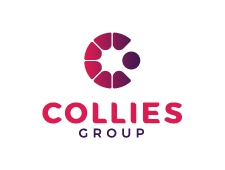STANDARD LESOTHO BANK: Striving to Reach and Include Every Lesotho Citizen
Standard Lesotho Bank (SLB) is the largest bank in the country, and reaps the full benefits of its association with the Standard Bank Group, Africa’s largest banking group. Newly-appointed CEO Anton Nicolaisen is perfectly placed to talk us through the unique challenges of the territory, and the opportunities for the bank to craft solutions, bringing new ways of banking and financial inclusion to even the remotest customer.
SLB was rocked by the passing in October 2020 of its CEO Kenrick Cockerill, following a short illness. Following a glittering 32-year career with the Standard Bank group, in which he had held several key leadership and specialist roles in the likes of South Africa, Botswana, Nigeria, Kenya and Mozambique, Cockerill was appointed to the position in April of last year, until then CEO at the Standard Bank in Tanzania.
The bank described the huge sense of loss at his passing, and the value of his wealth of experience. “Kenrick Cockerill’s untimely death is a great loss to the bank, our staff and the banking industry in general as we were looking up to him to improve the experience of our customers across all our points of presence. The board, management and staff of the bank conveys their heartfelt condolences to his family. He will be truly missed.”
Seeking a successor to a role of this import represents a colossal challenge in any situation; in these most tragic of circumstances it becomes near-insurmountable. However, after Thabiso Tšenki’s spell as acting Chief Executive during the recruitment process for a substantive CEO, up stepped Anton Nicolaisen to take the helm in March 2021.
THE RIGHT SUCCESSOR
The pinnacle of his own 32-year career history with the Standard Bank Group, Nicolaisen has already fulfilled a number of key leadership roles within the bank, developing and demonstrating the esoteric skills and abilities to lead a financial services organisation of this stature, along with an infectious, pure enthusiasm for the company and sector as a whole.
“I am a career banker,” Nicolaisen states, “having joined Standard Bank just as I was finishing my initial degree. I immediately loved banking and, as I always say, I truly think that banking found me – it was the perfect match for my personality and love of structure and discipline, which are some of the core principles in becoming successful in the industry.
“As I furthered my studies the bank then took me on a journey to some unbelievable places, through remotest South Africa, until I ultimately found myself in Gauteng having spanned the whole country and multiple units within the bank. Banking is such a multi-faceted business that you have incredible exposure to different people and aspects of the industry,” Nicolaisen says of the rich vein of experience this has allowed him to accrue.
“When this opportunity came about I went through the recruitment process and, ultimately and luckily, was deemed the right successor by the Board,” Nicolaisen explains. “It has always been on my bucket list to get exposure in other geographical areas than South Africa alone, and one thing I always tell people both within and outside of the Standard Bank Group is how many awesome opportunities are there waiting to be seized, to allow you to live out these dreams.”
Amid the challenges and conundrums of the ongoing tumult, the customer is at the forefront of the new CEO’s concerns. “The current environment is truly tough from a human point of view, especially as the third wave continues to punish us hard. The exciting part is the opportunities that this presents, specifically for Lesotho.
“Looking at how as a country to become more economical and sustainable, addressing unemployment and financial inclusion – these are key things which hold a lot of promise, and we are relishing the chance to be part of this next phase upon which the country is embarking.”
REACHING REMOTE
The move to Lesotho gives Nicolaisen a unique ability to assess and compare the two modes of operation, drawing some surprising conclusions along the way. “As might be the expectation, in the South African context there are certainly some things which are further ahead,” Nicolaisen says, “but actually, I came into Lesotho and found that other aspects of the business are moving forward much more quickly.
“I have learnt never to assume that one will automatically be better than the other, because there were some very distinct advancements that the Lesotho team had made that were brilliant.”
Lesotho presents some uniquely enticing opportunities and dynamics in terms of revolutionising customer experience, Nicolaisen goes on. “It is a country where the majority of the population is still in rural areas. Lesotho is still very deeply entrenched in its culture, which means that we really have to look at how we create value, in terms of financial inclusion, reaching these customers and allowing them to transact financially in the way they wish to do so.
“I am a big believer in identifying the customer need and then finding the solution for it – not the other way around.
“There are some definite improvements that we have earmarked in responding to these areas we have identified in terms of customer reach,” Nicolaisen goes on. “We are launching initiatives to give us greater mobility, for example the ‘bank on wheels’ that we are already deploying through the country – a fully functional branch, and a first of its kind.
“We are also starting to model how our physical representation will look versus the virtual. We have tilted a little towards the virtual space, using platforms to reach our customers, as opposed to a channel approach.”
PRIORITISING DIGITAL
“We want to really maximise our use of the digital approach, and we see our platforms as a key way to reach customers especially in the rural areas,” Nicolaisen reveals of the digital push SLB will sustain. The launch in March 2020 of data-free access on its Standard Bank app and internet banking exemplified this, allowing clients who are Vodacom subscribers to access both platforms at no cost.
“We are extremely delighted to introduce this development during such a critical time when we are facing the Covid-19 global outbreak. This new offering comes at a time when we are encouraging clients to reduce instances of going into branches and ATMs,” said Selloane Tsike, Head of Personal and Business Banking, urging others to join the more than 70% of clients who enjoy data-free online banking access to the bank’s services at their convenience.
“We want to give our customers easy solutions which they can access not only through a smartphone app, but also through USSD to create an experience for that customer that makes them feel part of the financial system,” Nicolaisen stresses. This combination of platforms, both app-based and those using USSD, combined with high teledensity in Lesotho, will help drive the next digital push for SLB.
“We have a new product ready to go which we will hopefully launch this year,” Nicolaisen details. “In this tough business environment it is critical to prioritise and make sure that the customer reaps value from the new initiative. They must actively want to use that solution in order to reap the benefit from a business point of view.
“This is certainly the case with the platform that we are set to launch, and will spur the constant development of our smart app to keep improving functionality and facility.”
Nicolaisen is the first to admit that there is still some way to go in overcoming old habits. “The preference of the majority of the population is still physical interaction rather than digital,” he recognises. “However, this gives us real scope to evolve, as long as it is done carefully enough that we bring our customers with us on that journey. Interacting with both the physical and the virtual is going to be key to our success.
“We want to be a digital, platform-based bank,” Nicolaisen offers in closing. “We want inclusivity and we want our customers to use our platform. In Lesotho, our aim is to reach each and every citizen in the country in some way.
“We have made significant strides already on this journey, and we will not stop until we are a truly digital business.”


